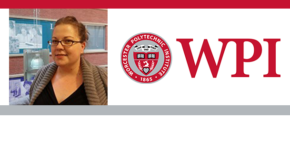 Worcester Polytechnic Institute’s Benefits of Project-Based Learning Week: Can too much of a good thing be bad for you? Not when it comes to project-based learning.
Worcester Polytechnic Institute’s Benefits of Project-Based Learning Week: Can too much of a good thing be bad for you? Not when it comes to project-based learning.
Kimberly LeChasseur, senior research and evaluation associate, examines why.
As a Research & Evaluation Associate with the Center for Project-Based Learning, Kimberly LeChasseur focuses on what we know about the value of project-based learning, both at WPI and at other colleges and universities where the Center is facilitating professional learning. She helps those invested in project-based learning at the college level to clarify, document, communicate, and use what they know about their work to improve the quality of project-based learning in action. Her PhD is in Educational Leadership & Policy Studies with training in sociology and anthropology.
Project-Based Learning: More is Better
Participating in a high-quality project-based learning experience is undeniably beneficial to college students. Is it reasonable to expect a single experience of student-centered, active learning to reverse the expectations and behaviors instilled in students over more than a decade of teacher-centered, passive learning? I don’t think so, which is why I am exploring the dosage effects of project-based learning, or PBL.
In education, dosage effects describe the amount of a particular type of learning experience an individual must have to receive the potential benefits. My research leverages a dataset from a STEM university that requires all undergraduate students to complete multiple projects. Consequently, many faculty at the university have begun to use PBL in their courses, allowing for a natural experiment where we can assess differences in learning outcomes across groups of students with varying proportions of project-based coursework.
First, we found that low doses of PBL were mostly insufficient. There were no differences in learning skills for using information effectively, project management skills, or cross-cultural awareness between those who had no projects in their courses and those who had projects in about 25 percent of their courses. Those with projects in 25 percent of their courses did report greater gains in communications skills than those with no course-based projects.
A moderate dose with PBL in approximately half of courses, however, is significant for developing all skills examined. While increasing the amount of PBL further to 75 percent of courses did not develop any of these skills at higher rates, increasing to a fully PBL-based curriculum did, specifically for the improvement of communications skills and cross-cultural awareness.
This tells us that faculty who offer projects in isolation and signature programs that offer a limited project experience are missing the opportunity to reap the full benefits from this high-impact practice.
